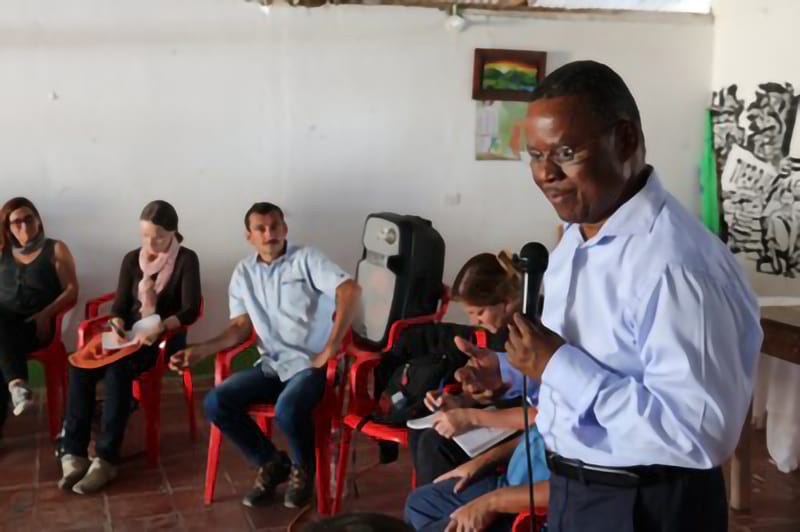GENEVE — “We express our deepest concern with regard to the search for peace in Colombia, and we call upon the Colombian government and all armed actors to refrain from targeting social leaders and communities in conflict zones,” said Rev. Frank Chikane, moderator of the World Council of Churches’ (WCC) Commission of the Churches on International Affairs (CCIA), in light of the recent killings of social leaders in Micoahumado, South Bolivar, and elsewhere around the country.

Belisario Arciniegas García and Wilmar Carvajalino were killed 7 and 10 May, respectively, reportedly by members of the National Liberation Army (ELN). After the killing of García, ELN sent a message to the community announcing “20 more to go,” apparently referring to the fact that they plan to kill 20 more people in Micoahumado.
“We are closely following developments in Colombia,” said Chikane.”Churches and faith-based organizations have contributed significantly to efforts for building peace and reconciliation in the country,” he added.
Chikane, who was one of the leaders of the anti-apartheid movement in South Africa, called upon the United Nations (UN) mission in Colombia to send a team of the UN verification mission to the region of Micoahumado.
In February 2018, Chikane led a WCC-CCIA delegation that visited the small village of Micoahumado, when they had the chance to interact with the community and learn more about the tensions that mark their daily lives.
The assassination of the two social leaders in four days in this one small community is one among many signs that tension is rising in Colombia and that this is a very critical moment in the peace process. It is part of a wave of killings in Colombia, with approximately 75 social leaders and human rights defenders having been assassinated already this year.
Earlier this week, global media reported that the head of the Colombian army has ordered his troops to double the number of criminals and insurgents they kill and possibly accept higher civilian casualties in the process, as an attempt to show more action in their efforts to secure the country.
“The people of Micoahumado are being threatened and attacked by both the Colombian army and the ELN,” observed WCC’s Director for International Affairs Peter Prove, who was also part of the group that visited the community last year. “That has been all too often the position in which local communities and their leaders find themselves in the midst of Colombia’s conflict, victimized by both sides,” Prove added.
“The Colombian army and all armed groups must stop the killing of social leaders and human rights defenders, and protect the Colombian people from violence and violation of their human rights.”
From 28-30 May, an ecumenical delegation from Colombia led by Dipaz, the inter-ecclesial platform of dialogue for peace, will be visiting the Ecumenical United Nations Office (EUNO), in New York, where the WCC will facilitate meetings with the UN Security Council Members regarding the setbacks that have taken place during Colombia’s peacebuilding process, and the growing humanitarian impact.
“WCC urges protection of Colombian peacemakers” – WCC news release 29 July 2018
“Role of churches in Colombia’s peace process raised at Global Christian Forum gathering” – WCC news release 29 April 2018
“For Colombian president, churches can play key role in peace process” – WCC news release 1 March 2018
The World Council of Churches promotes Christian unity in faith, witness and service for a just and peaceful world. An ecumenical fellowship of churches founded in 1948, today the WCC brings together 350 Protestant, Orthodox, Anglican and other churches representing more than 550 million Christians in over 120 countries, and works cooperatively with the Roman Catholic Church. The WCC general secretary is the Rev. Dr Olav Fykse Tveit, from the [Lutheran] Church of Norway.
CONTACT: Media Office +41 79 507 6363, media@wcc-coe.org
To read more news on Colombia on Missions Box, go here.
